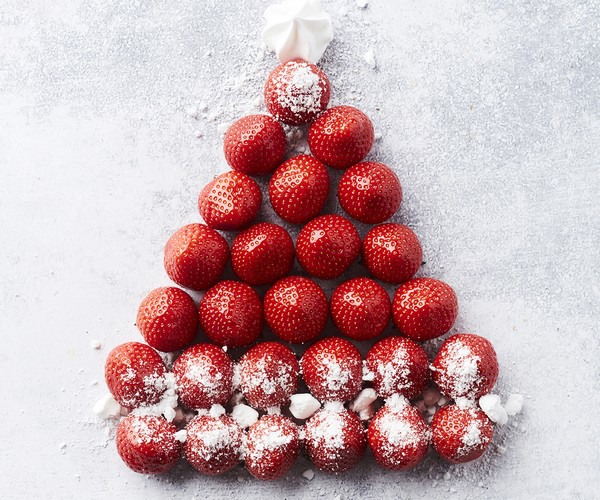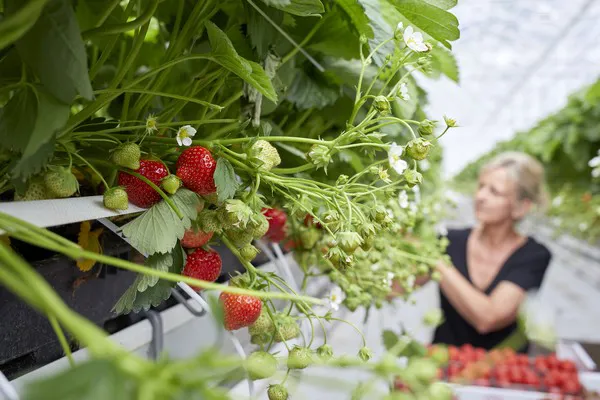Not long ago, most farms halted lighted cultivation in winter due to the energy crisis. At the time, questions arose about whether lighted cultivation would return or if local strawberries and tomatoes would only be available in summer. However, the years that followed quickly answered these concerns. Demand for local winter strawberries has increased at Coöperatie Hoogstraten, where this year's winter crop has surpassed pre-COVID-19 levels. "This winter, we have about eight growers covering 14.5 hectares in production," says Michiel Vermeiren of Coöperatie Hoogstraten. "This aligns with the growing demand for local strawberries over imported fruit, driven by factors like product security, sustainability, and taste."

"We've had a strong supply so far," he continues. "Some weeks, we received 360 tons of strawberries, but volumes have started to decrease. Two weeks ago, we were working with about 260 tons, and last week, it dropped to 140 tons. The decline is due to the clearing of autumn crops and staff heading home for the holidays. This period traditionally sees lower production."
"I expect volumes to dip slightly towards the new year, followed by an increase from mid-January as more departments begin production simultaneously. Some growers have already started, and more will join in January, ensuring we have sufficient volume for contracts and day trading. Currently, a small amount of Elsanta strawberries from exposed autumn crops will continue until New Year. From January or February onward, we will exclusively market the Sonata variety."
Day trade and contracts
Day trading through clock sales will continue as usual at the cooperative during the winter. "We keep the clock running on Mondays, Wednesdays, and Fridays after New Year, alongside a portion of the volume dedicated to contracts," says Michiel. "Relying solely on day trade is too risky given the costs of winter cultivation. Supporting the clock ensures growers can continue during winter while providing the trade with product security, either through the clock or contracts."

This approach is working well, Michiel notes. "Demand has remained strong throughout winter. Our contract base is slightly higher this year due to increased winter acreage, but we're also selling significant volumes through the clock. Demand primarily comes from the UK, Belgium, and the Netherlands. Retail chains are increasingly choosing local strawberries over imports, avoiding air freight. Product security has also become a decisive factor, as the reliability of southern imports has decreased, prompting customers to prefer stable local deliveries. While the clock remains our main sales tool, contracts provide a good solution for a portion of the volume."
Strawberry treat on the radio
The popularity of Hoogstraten strawberries in winter was recently highlighted on Belgian radio. "One of the Studio Brussels presenters, Thibault Christiaensen, who hails from Hoogstraten, mentioned the 'queens of Hoogstraten' during a broadcast," Michiel shares. "After losing a bet, he treated every listener on the show to Hoogstraten strawberries. It was a humorous moment but also a great opportunity to showcase our strawberries. Many listeners were surprised to learn that delicious local strawberries are available in winter. The presenters were also impressed by their sweetness—a hallmark of the Sonata variety, which brings a touch of spring to dark winter days."
 © Coöperatie Hoogstraten
© Coöperatie Hoogstraten
2024 ends on a high note for Coöperatie Hoogstraten, with preparations already underway for 2025. "The International Strawberry Congress is scheduled for September 17–20, and planning is in full swing," Michiel concludes.
For more information:
Michiel Vermeiren
Coöperatie Hoogstraten  Loenhoutseweg 59
Loenhoutseweg 59
2320 Hoogstraten, Belgium
Tel: +32 33 40 02 11
[email protected]
www.hoogstraten.eu










